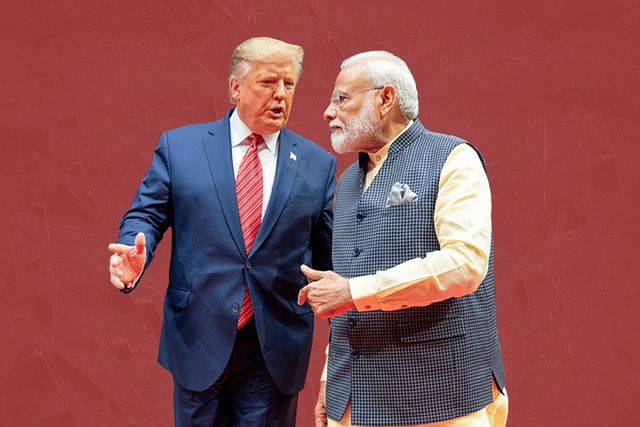
Trump Invites PM Modi To G7 Meeting In The US, China Gets Furious
Prime Minister Narendra Modi, in a telephonic conversation with the US President Donald Trump on Tuesday (3 June), accepted his offer to be part of the ''expanded G7'', the group of most powerful nations to discuss the collective approach to China.
Earlier this week, Trump decided to postpone the G7 meeting until September and invite India, Russia, Australia, and South Korea to discuss a plan on how to deal with the future of China.
The US and China have been in an open confrontation since the outbreak of the coronavirus pandemic which originated in Wuhan.
The phone conversation is significant in view of the ongoing face-off between India and China along the Line of Actual Control (LAC) in Eastern Ladakh. Though Trump had offered to mediate between the two Asian giants to resolve the violent stand-off, neither India nor China used the services of his office.
Both India and China are talking using diplomatic channels to resolve the issue. Last week, however, Trump had claimed that Modi was not pleased with the Xi Jinping regime over the ongoing border conflict.
On Tuesday, an official statement of the Ministry of External Affairs said that Modi had a telephone conversation with Trump.
During the phone call, Trump spoke about the US Presidency of the Group of Seven, and "conveyed his desire to expand the ambit of the grouping beyond the existing membership, to include other important countries including India".
In this context, the statement said, "He extended an invitation to Prime Minister Modi to attend the next G-7 Summit to be held in the US."
The government, however, did not elaborate on the mechanics of the ''expanded G7'' and in what capacity will India participate in the group.
Modi, as per the statement, commended Trump for his "creative and far-sighted approach, acknowledging the fact that such an expanded forum would be in keeping with the emerging realities of the post-Covid world."
PM Modi said that India would be happy to work with the US and other countries to ensure the success of the proposed summit.
During the conversation, PM Modi also expressed concern regarding the ongoing civil disturbances in the US and conveyed his best wishes for an early resolution of the situation.
The two leaders also exchanged views on other topical issues, such as the Covid-19 situation in the two countries, the situation on the India-China border, and the need for reforms in the World Health Organization.
The statement further said that during the conversation, Trump warmly recalled his visit to India in February this year. Modi reciprocated by saying that the visit had indeed been memorable and historic on many accounts, and had also added new dynamism to the bilateral relationships.
The exceptional warmth and candour of the conversation reflected the special nature of the Indo-US ties, as well as the friendship and mutual esteem between both the leaders, the statement said.
While India has accepted the US proposal, Russia has said that the proposed expansion does not really mean a true representation, referring to the exclusion of China from the group.
"The idea of an expanded G7 summit is, in general, a step in the right direction, but does not really mean a true representation. For instance, it is obvious that it is hardly possible to implement serious global initiatives without China,” said Russian Foreign Ministry spokesperson Maria Zakharova.
Meanwhile, China has been furious over the development as in a statement on Tuesday, Chinese Foreign Ministry said that any attempt to draw a “small circle” against Beijing would be "doomed to fail" and become "unpopular".
Referring to the proposed expanded G7, Chinese Foreign Ministry spokesperson Zhao Lijian said, “Any attempts to seek a small circle against China is doomed to fail and is unpopular.”
(With inputs from IANS)